In the world of sports nutrition, there is a variety of drinks designed to meet the specific needs of athletes and fitness enthusiasts. Among them, isotonic drinks, sports drinks, and energy drinks play a key role. However, it is essential to understand their differences and distinguish them from electrolytes and energy beverages.
What are isotonic drinks?
Isotonic drinks are formulated to replace fluids and minerals (electrolytes) lost during physical exercise through sweating. They contain similar concentrations of sugar and salt to those found in the human body, allowing for quick absorption into the bloodstream. Isotonic drinks are ideal for moderate to intense workouts lasting more than 60 minutes, as they provide both energy in the form of carbohydrates and electrolytes to maintain hydration.
Characteristics of isotonic drinks:
- Composition: A balanced mix of carbohydrates (sugars) and electrolytes (sodium, potassium, etc.).
- Purpose: Maintain hydration and provide quick energy.
- Usage: Prolonged endurance exercise such as running, cycling, or football.
What are sports drinks?
Sports drinks are often confused with isotonic drinks. However, they are specifically designed to enhance performance by providing not only carbohydrates and electrolytes but also other beneficial ingredients like amino acids, caffeine, or vitamins. These drinks are formulated to meet the high energy needs of endurance sports.
Characteristics of sports drinks:
- Composition: Carbohydrates, electrolytes, vitamins, sometimes caffeine or amino acids.
- Purpose: Boost energy, improve endurance, and delay fatigue.
- Usage: Prolonged endurance exercise or high-intensity sports such as marathons or triathlons.
What are Energy Drinks?
Energy drinks are mainly designed to provide a quick energy boost, often thanks to stimulating ingredients like caffeine, guarana, or ginseng. Unlike isotonic and sports drinks, they are not intended for rehydration or electrolyte replacement.
Characteristics of energy drinks:
- Composition: Caffeine, sugars, and sometimes other stimulants.
- Purpose: Stimulate mental and physical energy.
- Usage: Moments of mental fatigue, but not recommended for regular use during intense exercise due to the risk of dehydration.
What are electrolytes?
Electrolytes are minerals such as sodium, potassium, calcium, and magnesium, which help regulate the body's fluid balance. While isotonic and sports drinks contain electrolytes, there are specific electrolyte drinks or hydration drinks in the form of powders or tablets to add to water. These supplements are ideal for athletes who lose a lot of minerals through sweat without requiring a significant caloric intake.
Characteristics of electrolyte drinks:
- Composition: Sodium, potassium, calcium, magnesium.
- Purpose: Replace salts lost through sweat, particularly in hot climates or during long periods of exertion.
- Usage: For athletes who prefer to limit carbohydrate intake but need to maintain a good electrolyte balance.
What differences with energy drinks?
Energy beverages are often mistakenly perceived as sports drinks, but they are not recommended for rehydration or as a source of energy for sports. Indeed, they often contain high amounts of caffeine and sugar, which can lead to dehydration and an energy crash once the initial effect wears off.
Characteristics of energy drinks:
- Purpose: Unlike isotonic and sports drinks, energy beverages are not formulated to support endurance or sports performance.
- Composition: Energy beverages are rich in caffeine and sugar, while isotonic and sports drinks focus on carbohydrates and electrolytes for effective hydration.
Below you'll find comparative tests on the composition and price per 500ml can between Mulebar's sports drinks and the main products on the market. If you think there's something missing, write to us at contact@mulebar.com and we'll be happy to add it in full transparency.
Mulebar energy drink vs Isostar hydrate and perform :

Mulebar energy drink vs Punch Power Bio drink antioxidant :

Mulebar energy drink vs Meltonic antioxidant energy drink :

Mulebar energy drink vs Ta Isotonic :

Mulebar energy drink vs Maurten Drink mix 320 :

Mulebar energy drink vs Baouw Citrus :

Mulebar energy drink vs Aptonia Iso + :

Mulebar energy drink vs Naak energy drink :

Mulebar energy drink vs Apurna hydration drink :

Mulebar energy drink vs Authentic nutrition Booster Plus :

Mulebar energy drink vs Overstims Hydrixir :

Mulebar energy drink vs Atlet energy drink :

See the same guide for hydration drinks
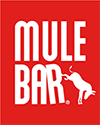
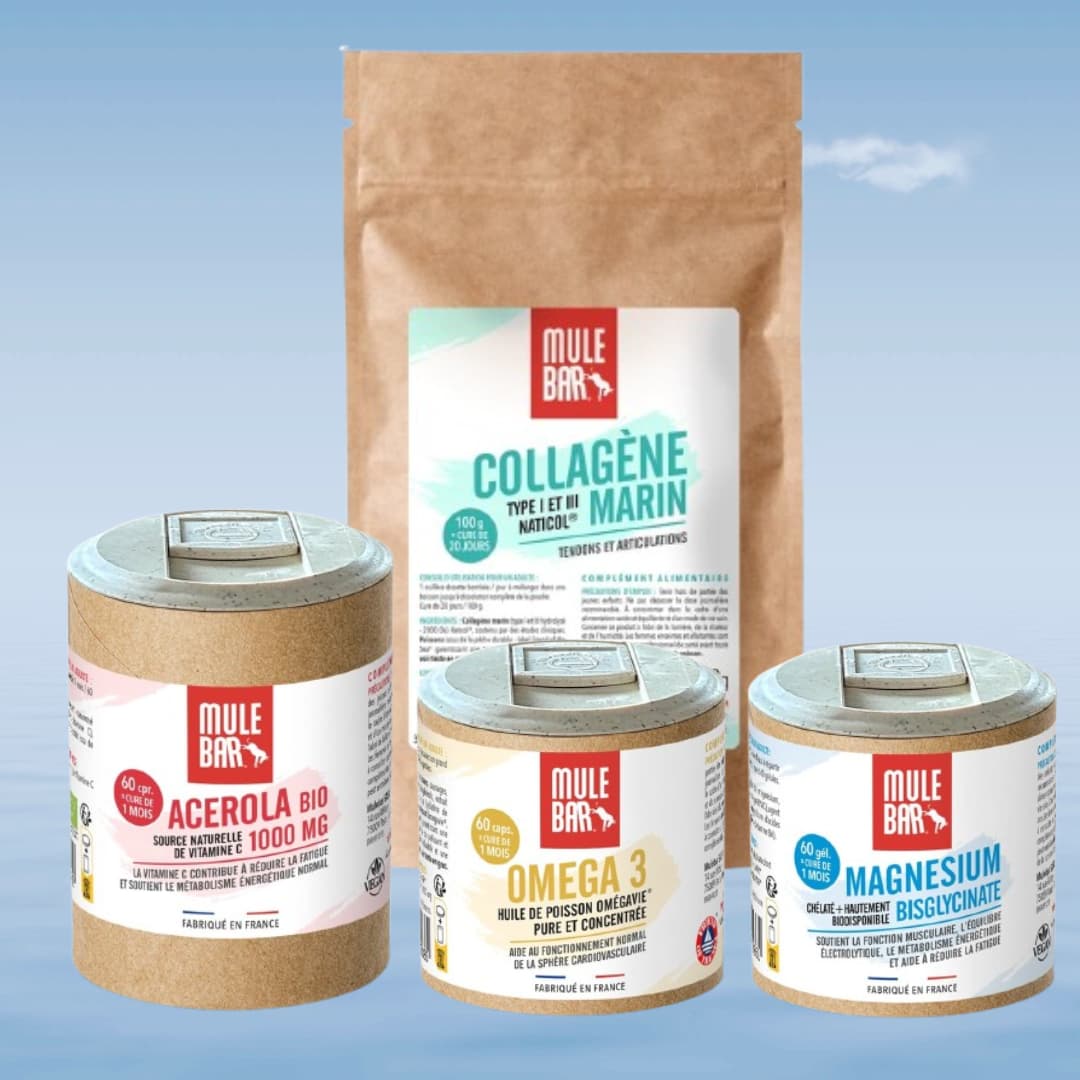

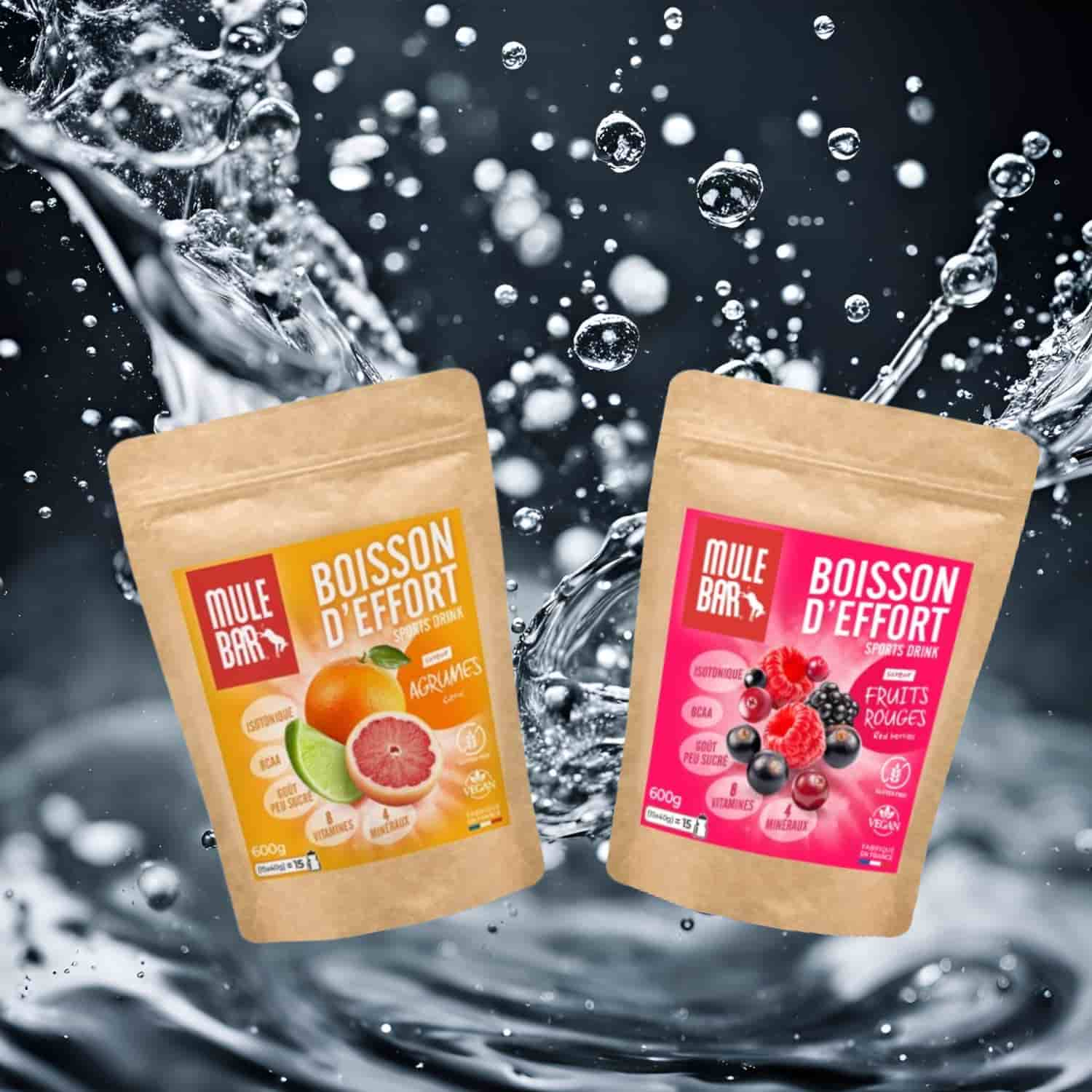
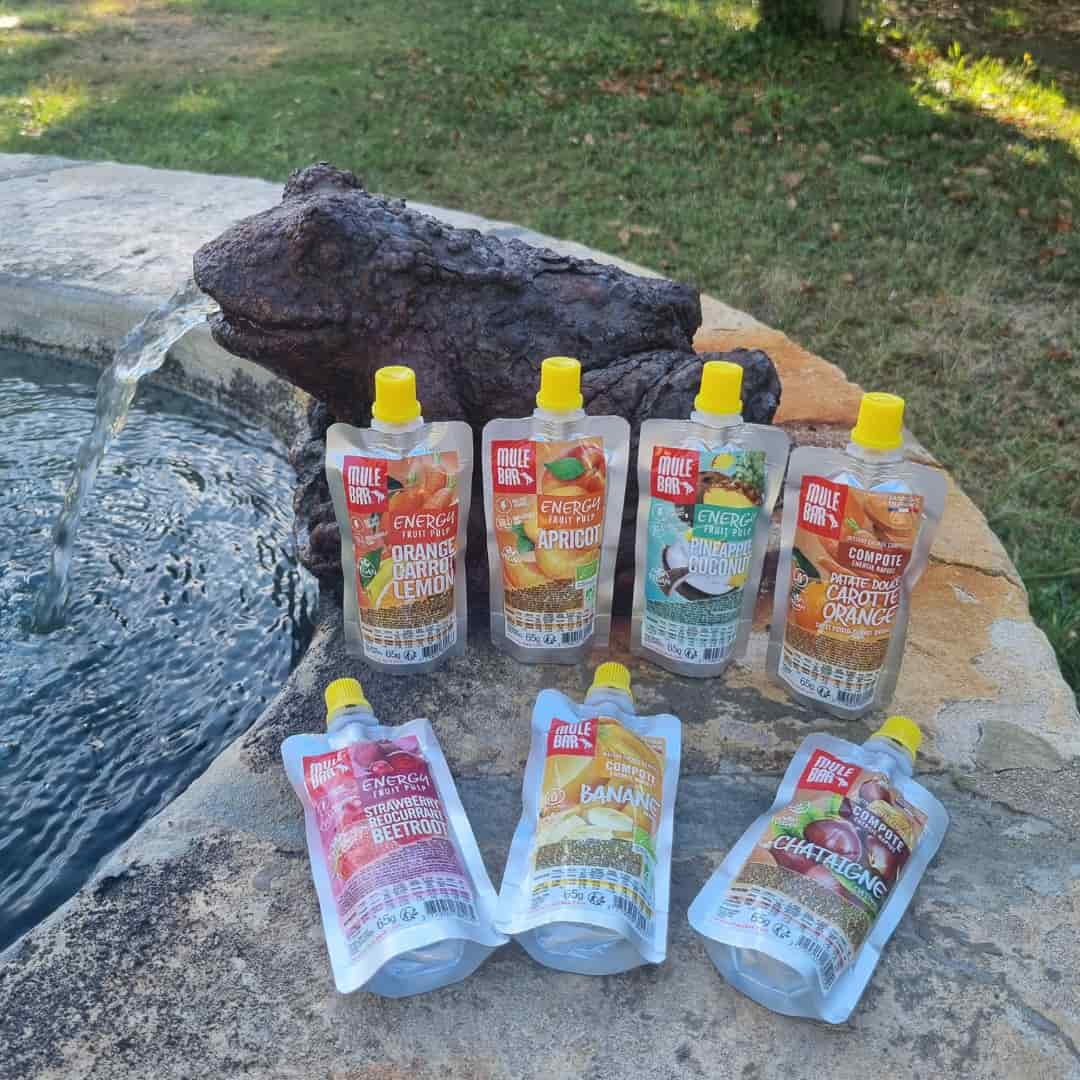
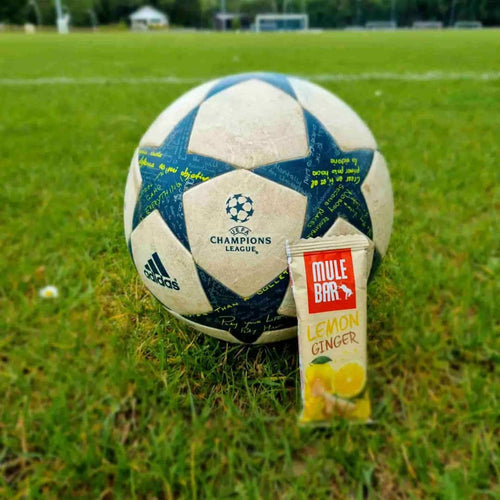
Leave a comment
This site is protected by hCaptcha and the hCaptcha Privacy Policy and Terms of Service apply.